Tired of being seen as 'bad guys,' Riz Test creators seek 'human portrayals' of Muslims on screen
As a kid growing up in the 1980s, Shaf Choudry loved Hollywood blockbusters. Back to the Future and Raiders of the Lost Ark were favourites.
But as an adult, he started to see things differently. He noticed a recurring theme when it came to Muslim characters on screen: they were portrayed as terrorists or "bad guys."
"As a child, if you see that enough on screen you're going to internalize that," said Choudry, who is Muslim.
"That has cascading effects as to how you see yourself and your self-worth, your self-esteem."
Choudry can list many examples of films and TV shows that depict negative stereotypes of Muslims, from long-running series like Homeland and 24 to movies such as Sicario 2 and Iron Man.
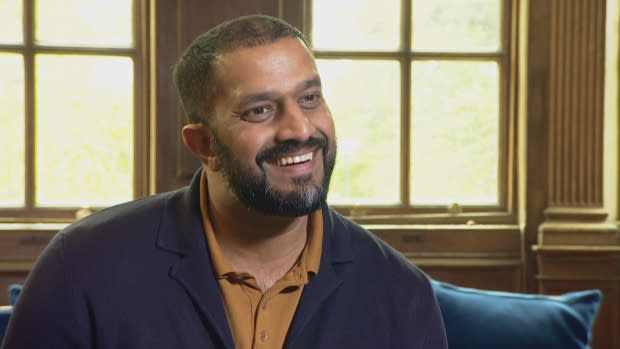
Determined to fight the stereotypes, the Manchester, England-based tech consultant co-founded the Riz Test, a crowd-sourced, online project that tabulates the portrayal of Muslims in films and TV shows. It's named after Riz Ahmed, who in 2017 became the first Muslim man to win a lead actor Emmy Award, for the miniseries The Night Of.
Born in London to Pakistani parents, the rapper and actor, also known for movies like Venom, Rogue One: A Star Wars Story and Nightcrawler, has regularly spoken out about the need for better representation of Muslims in the media. His 2017 speech to the British Parliament on the subject, for instance, was shared widely.
Choudry created the Riz Test with Isobel Ingham-Barrow and Dr. Sadia Habib. They were inspired by similar measurements tools like the Bechdel Test for Women in Movies, which gauges female representation on screen.
The Riz Test asks viewers to pose the following questions when evaluating a movie or TV show.
If the film/show stars at least one character who is identifiably Muslim (by ethnicity, language or clothing), is the character:
Talking about, the victim of or the perpetrator of terrorism?
Presented as irrationally angry?
Presented as superstitious, culturally backwards or anti-modern?
Presented as a threat to a Western way of life?
If the character is male, is he presented as misogynistic? If female, is she presented as oppressed by her male counterparts?
If the answer for any of the above is yes, then the film/show fails the test.
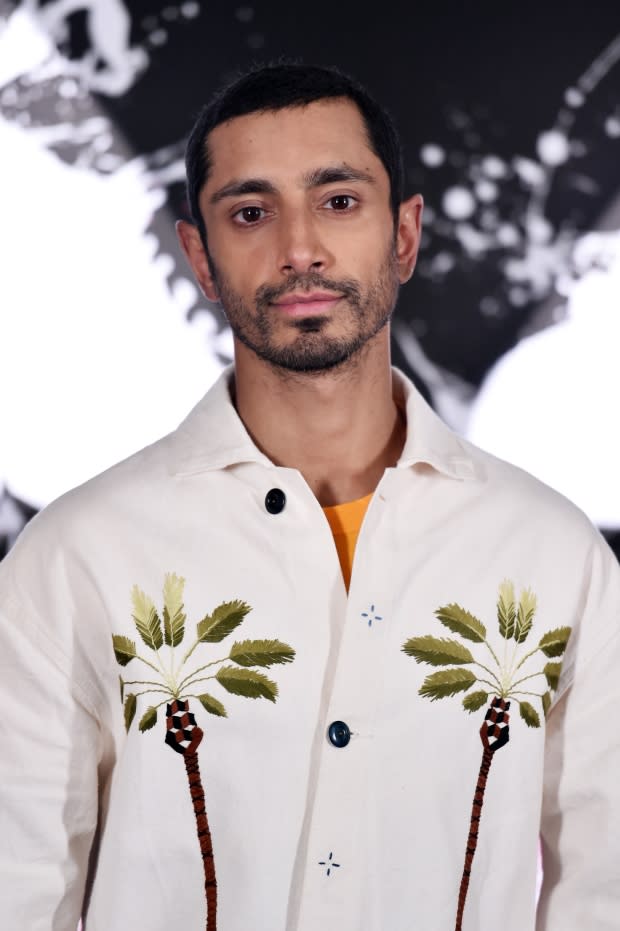
Soon after the Riz Test launched, Ahmed tweeted his approval, calling it "much needed."
Even 'shining examples' can fail
Choudry and his colleagues are gathering results and plan to launch a website that will serve as a film and TV database somewhat like review and ratings site Rotten Tomatoes, but focused on how Muslims are portrayed.
They've discovered that even films that have won acclaim for promoting diversity can fail the Riz Test.
Black Panther is "a watershed film for representation of black people on screen" and "a great film" that Choudry enjoyed. "But even Black Panther lets Muslims down."
He recounts a scene in the superhero blockbuster that depicts Boko Haram-like figures who have kidnapped a group of young women. When confronted, one of the men shouts: "Wallahi (I swear by Allah) I will shoot her."
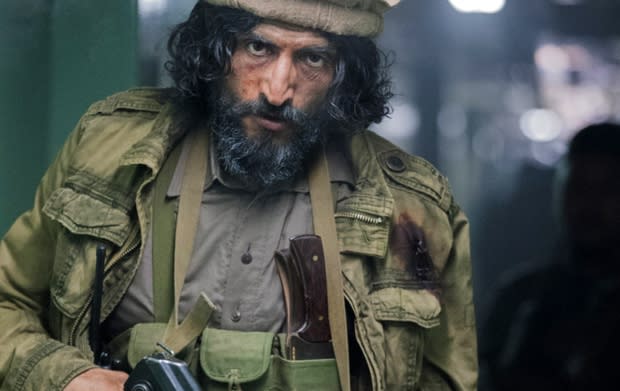
"That really drove us to [the realization that] we need to do something about this because even wonderful, shining examples of great representation aren't fully representative."
Another recent, acclaimed project that fails the test is BBC drama Bodyguard, also seen on Netflix, which received multiple Emmy Award nominations — including for outstanding drama series — this month.
"Not only does it fail the Riz Test, but it fails all five criteria of the Riz Test within the first 12 minutes of the first episode, which is horrendous," Choudry said.
"It really is shocking. It is jarring."
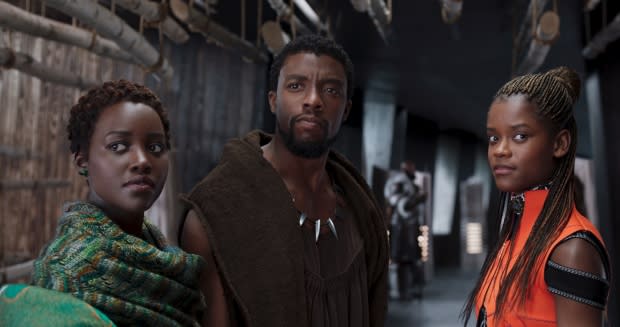
One of Bodyguard's pivotal characters is Nadia, a hijab-wearing Muslim woman who is part of a suicide bomb plot.
According to Choudry, "there's been incidents in London where women wearing the hijab, the head scarf, on public transport have been shouted at [by people who] said: 'Oh, are you Nadia? Do you have a bomb?'
"That's a real-world implication of shows like Bodyguard," he said.
The goal of the Riz Test is to increase awareness of Muslim stereotypes on screen and inspire more complex depictions.
"What we don't want is to only have wonderful, shining examples of Muslims," Choudry said.
"What we are advocating for is human portrayals of Muslims on film and TV — and that comes with all the wonderful nuances of being flawed characters and complex characters, with personality flaws and traits that everyone has."
'A distortion'
Bodyguard creator Jed Mercurio, however, defends his series from criticism of its depiction of Muslim characters.
"It was a portrayal of various terrorist threats and a wide conspiracy that had a number of elements. One element of that was Islamist terrorism, which exists in the real world," Mercurio said in June from the Banff World Media festival, where he received a Rockie Award as showrunner of the year.
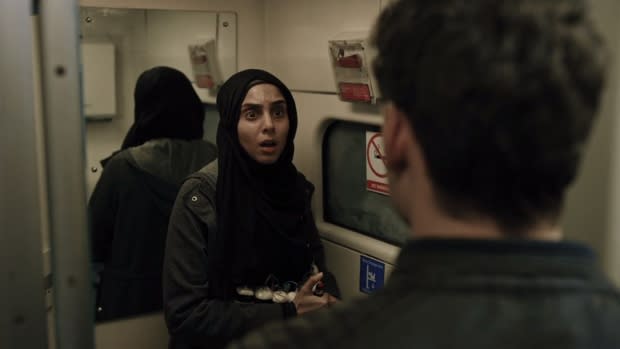
"There were Muslim characters portrayed in the series who were fighting the terrorist threat, so I do reject the assertion that the series is problematic in terms of the Riz Test."
Mercurio believes the Riz Test and the Bechdel Test can create false positives and false negatives.
"It's too early to say how valid the Riz Test is as an analytical tool," he said.
"There are five points to the Riz Test and it's arguable that the series is problematic on one or two of the five. And I have read people whose opinion is that [Bodyguard] fails on all five counts. That is a lie and a distortion."
'Tell better stories'
Since the Riz Test was launched in 2018, interest is growing, with its creators busy with media requests and speaking engagements.
Iranian-Canadian academic Zahra Khosroshahi recently invited Choudry and Habib to present a workshop at England's University of East Anglia in Norwich, where she's completing her PhD on the representation of women in Iranian cinema.

"In terms of the way Muslims are represented in film and TV, I'd say it's pretty grim," she said.
"Hollywood is extremely powerful and its films are worldwide, they travel globally. And so I think there's a lot of responsibility on Hollywood to tell better stories, to show better representation."
'Super scary' to be a Muslim
For the namesake of the Riz Test, that change can't come soon enough.
It is "super scary" to be a Muslim right now, Ahmed noted in a speech at CAA Amplify, a late-June, invitation-only conference in Ojai, Calif., that brought together artists, sports figures and leaders from other fields to discuss diversity and multicultural issues.
He said U.S. Homeland Security had blocked him from attending a Star Wars celebration in Chicago this spring and that he has frequently been stopped and searched by airport security.
The performer called for "research on Muslim representation on screen, and guidance about establishing a production company to make content that passes the Riz Test," according to the Los Angeles Times.
"Lives are quite literally at stake here," Ahmed said.
"The representation of Muslims on screen affects the policies that get enacted, the people that get killed, the countries that get invaded."


